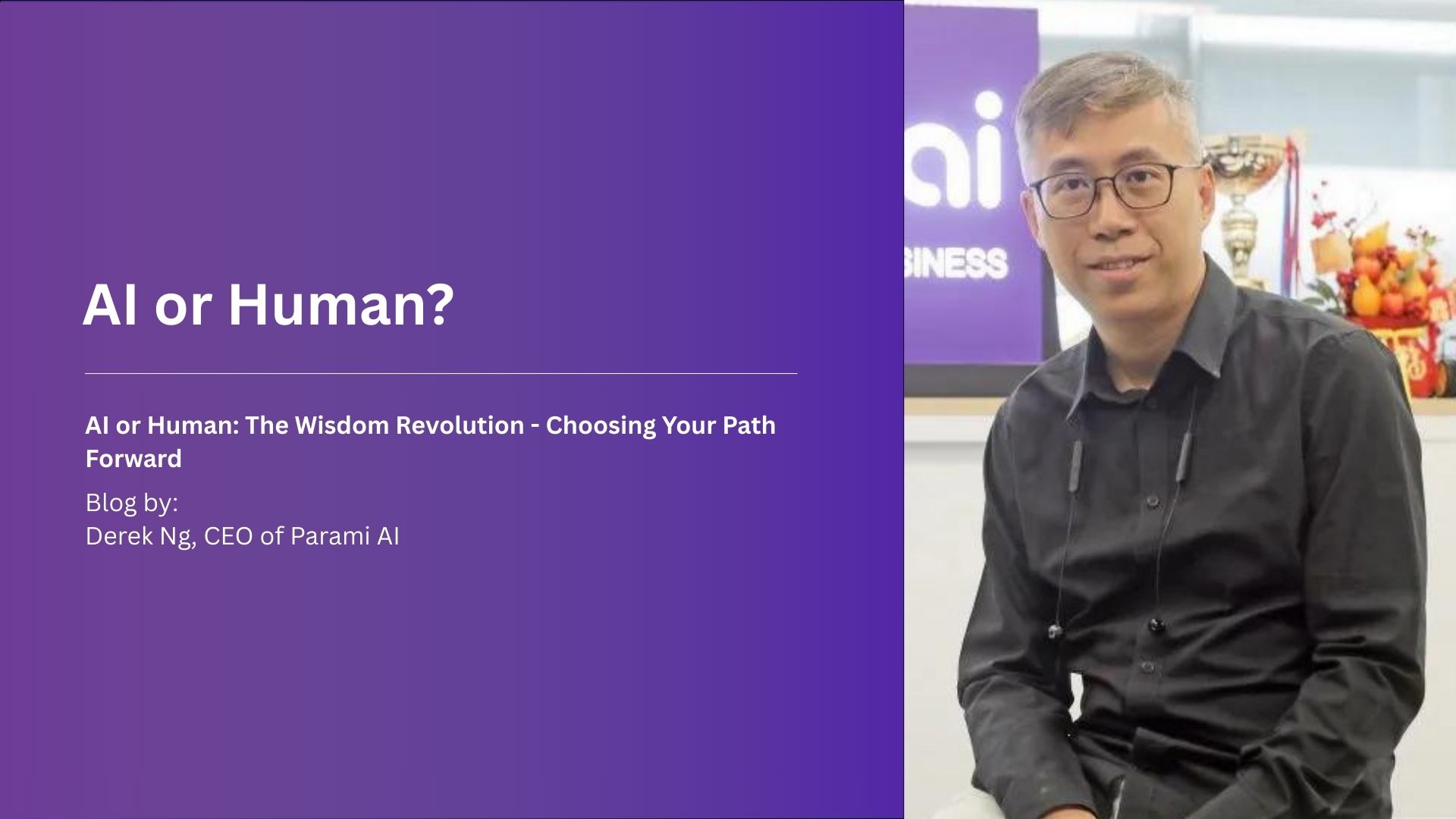
In today's business environment, we face a critical decision: AI or human - which will drive competitive advantage? This isn't about choosing sides in a technological debate, but understanding how the AI or human dynamic will determine market leadership. The answer lies not in competition, but in strategic human capital development.
A fundamental shift is happening in the market—one where the question of AI or human dominance becomes irrelevant when businesses invest in high-wisdom human capital. Organizations and professionals must commit to systematic capability development: focusing not on short-term gains or quick fixes, but on building deep expertise, strategic insight, and cognitive excellence in this AI or human integrated landscape.
High wisdom isn't an inherent talent—it's a strategic investment and systematic process. This means leveraging every available resource including artificial intelligence, emerging technologies, analytical frameworks, data-driven decision making, and most importantly, a growth-oriented mindset to expand intellectual capacity. In the AI or human equation, the path forward is clear: in the future, only those who have developed superior cognitive capabilities and strategic thinking will maintain competitive advantage. Others will lose market relevance by failing to adapt.
To understand your current capabilities in this transformation, consider completing a digital transformation assessment (available in Chinese for now) to map your strategic development path.
The traditional AI or human framework misses the business opportunity. Rather than viewing this as competitive positioning, successful organizations recognize that artificial intelligence functions as a capability multiplier for human expertise. When we analyze "AI or human?" we should be asking "How does AI enhance human performance and ROI?"
The market leaders of tomorrow won't be those who choose AI or human exclusively, but those who optimize the integration of both intelligence types. This integration requires systematic development of human cognitive capabilities to match our technological infrastructure investments.
Organizations must reassess how they allocate cognitive resources, particularly as the AI or human dynamic reshapes information processing workflows. The constant consumption of low-value content—pure stimulation without strategic value—degrades mental performance when cognitive clarity delivers the highest ROI. Instead, redirect focus toward strategic analysis. Invest time in critical thinking, strategic planning, and capability development: eliminate low-value activities and concentrate on high-impact cognitive work.
In the AI or human business ecosystem, human cognitive differentiation becomes the primary competitive asset. While AI excels at data processing and pattern recognition, humans deliver strategic insight, innovation, and stakeholder management—but only through systematic capability development.
While AI excels at data processing and pattern recognition, humans deliver strategic insight, innovation, and stakeholder management—but only through systematic capability development.
Invest in high-rigor disciplines like mathematics, physics, and strategic thinking frameworks. These competencies develop analytical capability, enforce logical precision, and build the cognitive infrastructure for both analytical and creative problem-solving that delivers measurable business impact. Choosing demanding cognitive development might require significant investment, but the ROI is substantial. Through systematic challenge, mental capacity expands exponentially in ways that complement rather than compete with artificial intelligence.
When we analyze the AI or human question through business strategy, we see that human intelligence offers irreplaceable value: the ability to create meaning, establish purpose, and provide ethical leadership in decision-making. This is our competitive differentiation in the AI or human partnership.
Human intelligence offers irreplaceable value: the ability to create meaning, establish purpose, and provide ethical leadership in decision-making
Deploy technology strategically. Advanced AI tools are designed to amplify capability, not replace it—when implemented correctly, they accelerate cognitive development. This represents optimal AI or human collaboration. In competitive markets like Hong Kong, we're seeing measurable results from businesses that implement AI tools strategically to enhance human performance. Use these systems to access knowledge, formulate strategic questions, and develop new analytical approaches.
The strategic question isn't "AI or human?" but rather "How do I use AI to become a more capable, strategic, and effective business leader?" Those who master this operational synergy will control market position. To understand your current capabilities in this transformation, consider completing a digital transformation assessment (available in Chinese for now) to map your strategic development path.
When we analyze the AI or human dynamic from a business perspective, we must recognize that developing high-wisdom human capital is the highest-ROI investment and our primary market differentiator. While AI can process data with superior speed and accuracy, it cannot replicate human strategic thinking, stakeholder management, and ethical decision-making capabilities.
Many business leaders are concerned about whether AI will replace human jobs, particularly in competitive markets like Hong Kong. The data shows that strategic human capital development eliminates replacement risk: professionals who develop superior cognitive capabilities and master AI collaboration don't get replaced—they become indispensable.
The competitive advantage belongs neither to AI nor to humans independently, but to strategic leaders who systematically leverage AI capabilities to amplify their business impact and market influence.
The data shows that strategic human capital development eliminates replacement risk: professionals who develop superior cognitive capabilities and master AI collaboration don't get replaced—they become indispensable.
The bottom line: developing high-wisdom human capital is the optimal strategic investment in this AI or human economy. Eliminate low-value activities—the cognitive waste that prevents growth and adaptation to technological advancement. Commit to the systematic, results-driven path toward cognitive excellence, where you can effectively navigate the AI or human landscape with strategic clarity and competitive advantage.
The choice isn't AI or human. It's becoming the type of business leader who can maximize AI leverage while maintaining what delivers irreplaceable human value: strategic insight, innovative thinking, systematic growth capability, and the ability to create meaningful business impact.
This strategic development path requires commitment, systematic execution, and measurable progress as you establish your competitive position in the AI or human market dynamic.
To understand your current capabilities in this transformation, consider completing a digital transformation assessment (available in Chinese for now) to map your strategic development path.
